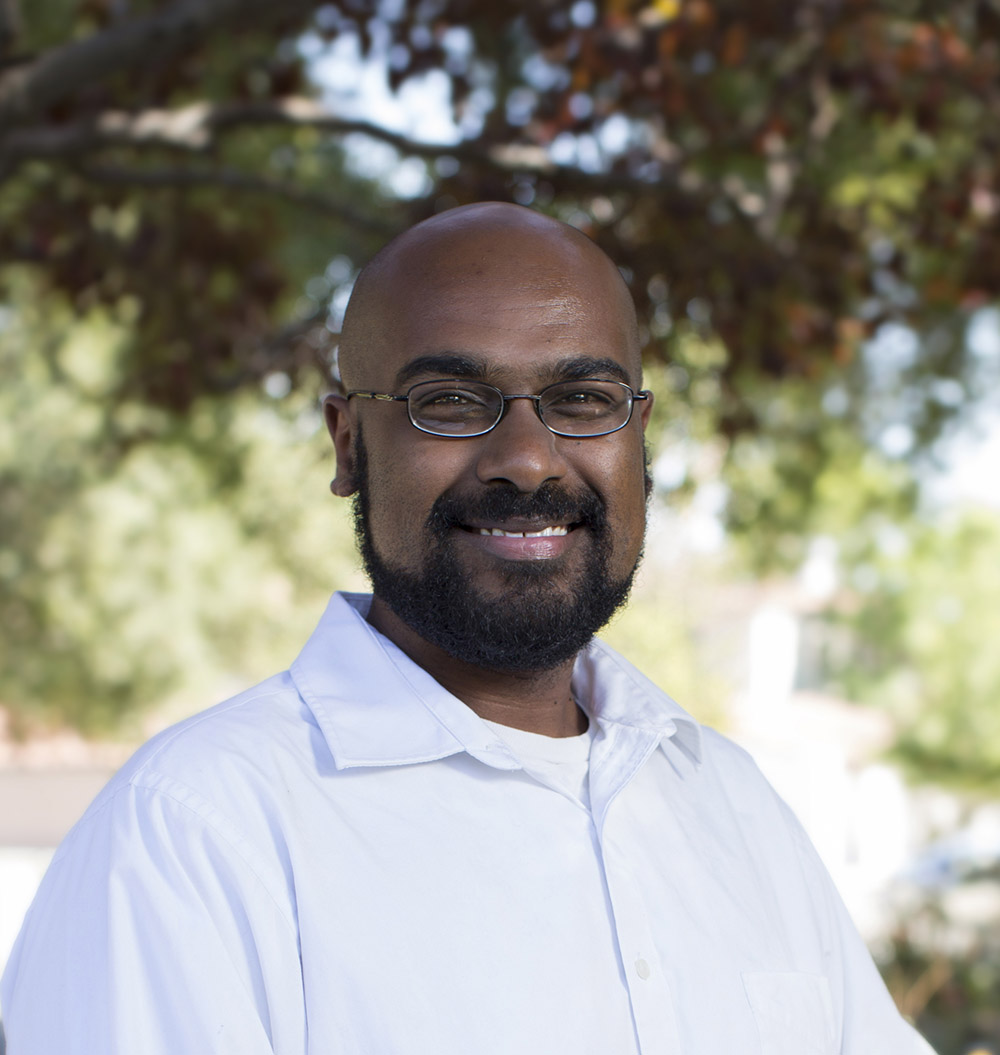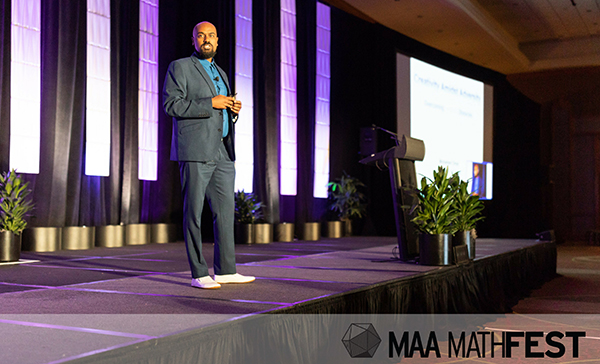Omar Wins Math Teaching Award
August 14, 2018
Harvey Mudd College mathematics professor Mohamed Omar is one of the top mathematics educators honored for their dedication to teaching and engaging students by the Mathematical Association of America during the organization’s 2018 MathFest. The Henry L. Alder Award recognizes beginning college or university faculty whose teaching has been extra ordinarily successful and whose effectiveness in teaching undergraduate mathematics is shown to have influence beyond their own classrooms.
Each year, the MAA honors beginning college or university faculty whose teaching has been highly effective and successful in undergraduate mathematics. “The MAA is pleased to honor the work of these top educators. Their work exemplifies MAA’s values, and through the open exchange of ideas on teaching and learning, helps support our mission to advance the understanding of mathematics and its impact on our world,” said Michael Pearson, executive director of the MAA.
“It is an honor to be recognized by a leading national mathematics association through the Alder Award,” said Omar. “The Harvey Mudd College community played a pivotal role in making this possible.”

Omar delivers an address at the 2018 MathFest. Photo courtesy of Mathematical Association of America.
Omar is a leading expert on creativity in mathematics, having been featured online in both Forbes and Scientific American. He has collaborated with national leaders in mathematics education to promote creativity as a critical element of learning. He has served on organizing committees for some of the largest high school mathematics competitions in the U.S. and Canada, including the American Mathematics Competition and the Canadian Open Mathematics Challenge, both of which are preliminaries in selecting national teams for the International Mathematical Olympiad. He has also created YouTube videos sharing creative techniques for deconstructing standardized test problems.
Omar’s research employs sophisticated mathematical techniques to study foundational questions about networks, including questions about the structure of abstract networks, and fundamental questions about networks in neuroscience motivated by Nobel Prize winning work. His research also focuses on discrete mathematics: understanding patterns in finite structures.
